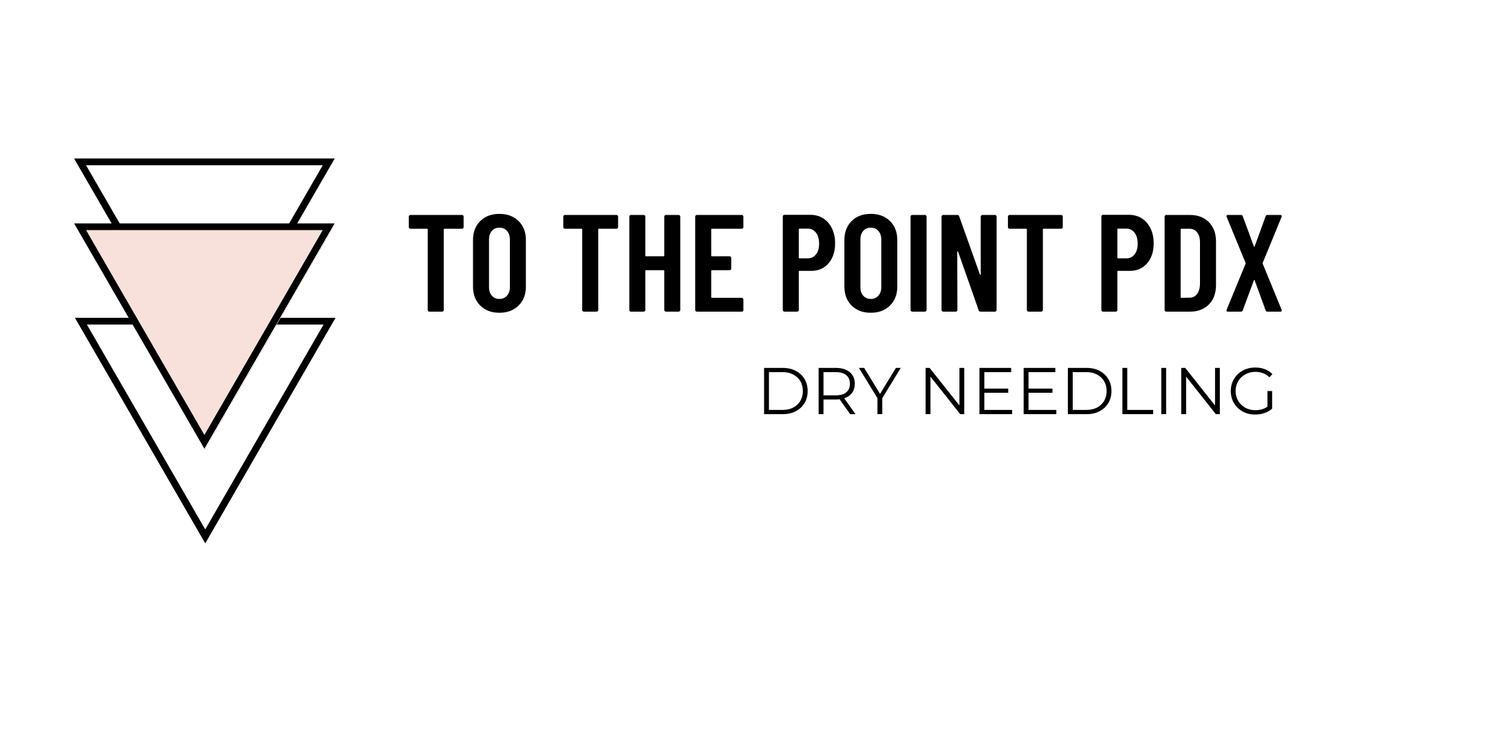Do you need training to dry needle in Portland?
Short answer: Yes.
Certified dry needling providers are trained by dry needling-specific institutions. At To The Point PDX, our dry needling providers are certified by Myopain Seminars. Myopain is the most comprehensive dry needling certificate available to providers; candidates must attend over 60 hours of on-site training and pass a comprehensive written test.
Dry needling is a manual therapy technique that can be practiced by acupuncturists, physical therapists and chiropractors. What providers can perform dry needling is decided by legislative scope of practice laws and administrative rules. In Oregon, acupuncturists who are certified in dry needling are the only providers that provide the most effective dry needling techniques. However, not all acupuncturists are certified in dry needling. In fact, very few are certified in dry needling.
Trigger Point Acupuncture is not dry needling. And dry needling is not trigger point acupuncture. Acupuncturists have over 2,000 hours of training that includes needling, Chinese Medicine, anatomy and Chinese Herbs. The focus of the 2,000 hours of training is on Chinese Medicine, not on orthopedic needling techniques. Yes, trigger point acupuncture can be effective, but if you’re looking for dry needling, Dr. Sarah is the only certified dry needling provider in the state of Oregon who is certified and has ample experience practicing the modality.
When looking for a quality dry needling provider, ask questions. Ask whether or not they have been certified in dry needling, where that certification came from, and how many hours of training the certification program required. Dry needling is a specific modality and providers must be extensively trained. Some programs offer certification after 24 hours, some programs offer certification after 60+ hours of instruction.
We’re happy to answer questions about dry needling in general, and dry needling in Portland here at To The Point PDX. Give us a call at 503-705-6637 and we’ll answer all of your tough quesitons.
